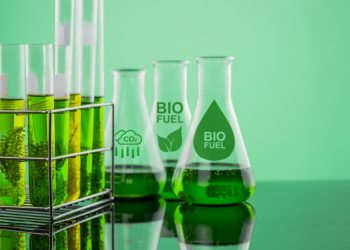On September 11th, a new bio-LNG plant by Attero and Nordsol, that is expected to produce fuel for the maritime industry, was inaugurated in Wilp, Netherlands.
As informed, the facility produces bio-LNG from biogas derived from vegetable, fruit, and garden waste, marking a significant step towards more sustainable transport, particularly for heavy road and maritime sectors. The plant is set to convert 6 million Nm³ of biogas into 2,400 tonnes of bio-LNG and 5,000 tonnes of liquid bio-CO2 annually.
Over the next decade, the plant is expected to lower CO2 emissions by 87,500 tonnes. The bio-LNG produced offers a crucial solution for sectors where full electrification is not yet feasible, such as long-distance freight, shipping, and aviation. With its potential to be integrated into existing infrastructure, bio-LNG is seen as a scalable and cost-effective renewable fuel.
This project aligns with European Union sustainability goals, particularly in heavy transport, and has been supported by a €4.3 million EU grant.
Generally, bio-LNG is gaining popularity in the maritime industry. According to SEA-LNG, Gasum will bunker Hapag-Lloyd’s container vessels with a total amount of 20,000 mt of bio-LNG during 2025–2026.
































































